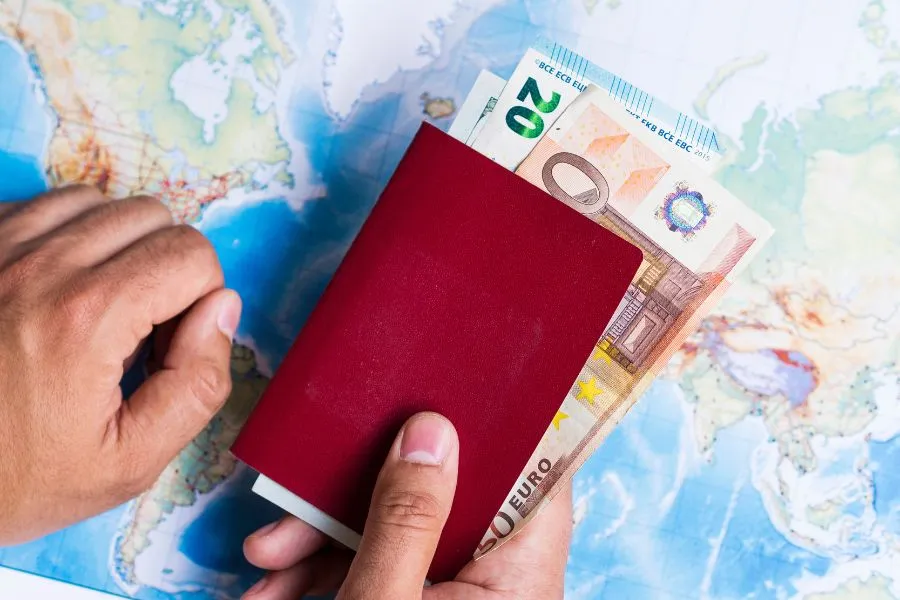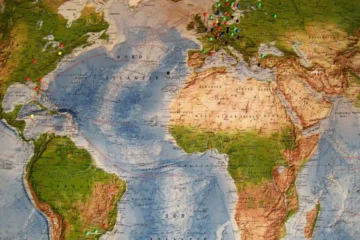Denmark has officially raised the cost of becoming a Danish citizen, and the news has sent a ripple through the expat community. As of May 1, 2025, the application fee for Danish citizenship is now 6,000 Danish kroner (DKK). This fee applies to first-time applicants who are seeking naturalization through the standard process.
Key Takeaways
What Is the New Citizenship Fee in Denmark for 2025?
If you’ve already been through the system and didn’t quite make the cut the first time, brace yourself—repeat applicants now face a separate 3,000 DKK reapplication fee. That’s in addition to whatever documents, translations, or courses you might already be paying for on the side.
This isn’t just a minor administrative adjustment; it’s a significant financial change. And for many immigrants already navigating Denmark’s high cost of living, it feels like another hurdle added to an already demanding process.
How Much Has the Fee Increased Compared to Previous Years?
Let’s break down the numbers. Before May 2025, the citizenship application fee in Denmark was 4,000 DKK. That means the latest change represents a 50% increase, not exactly spare change. What cost around €535 is now over €800, depending on currency fluctuations.
The introduction of the 3,000 DKK fee for repeat applicants is entirely new. Previously, reapplying for citizenship didn’t come with an added cost beyond the initial payment. Now, not only must unsuccessful applicants wait and requalify—they also have to pay again, albeit at a slightly reduced rate.
This is part of a broader shift in policy that aims to make the application process more financially self-sustaining, but many argue it hits ordinary people the hardest.
Are There Any Exceptions to the New Citizenship Fees?
Yes, but they’re limited, and you’ll need to meet specific criteria to qualify. Applicants who were born in Denmark or who arrived before turning eight years old will continue to pay the original 4,000 DKK fee. This exemption acknowledges the stronger integration and social connection that these individuals likely have with Danish society.
Also Read: How Can You Secure a High-Demand Job in Denmark Before 2026?
However, most foreign-born adults applying under the general naturalization track won’t benefit from this exemption. And for family applicants—say, two parents and two children—the total cost of applying can rise quickly, even before considering any language exams or integration programs.
So while the lower rate still exists, it applies to a relatively small slice of the applicant pool.
Why Has Denmark Increased Its Citizenship Fees in 2025?
According to Danish officials, this isn’t about pushing people away—it’s about covering real costs. The government claims the 6,000 DKK fee better reflects the administrative burden and resources involved in processing applications, vetting documents, checking backgrounds, and coordinating across departments.
They’ve also justified the repeat applicant fee as a deterrent against people submitting half-baked or non-serious applications just to “try their luck.” Officials argue that multiple submissions clog up the system, slow down processing, and raise costs for everyone.
While the state’s logic is grounded in financial efficiency, critics say the timing couldn’t be worse, especially as Denmark works to attract skilled foreign professionals and improve long-term integration outcomes.
What Are the Reactions from the Immigrant Community?
As expected, the backlash has been loud and fast. Immigrant rights groups and community advocates argue that these changes erect unnecessary financial barriers. Many feel that citizenship—especially for long-term residents who already contribute to Danish society—should not be priced out of reach.
For low- and middle-income expats, particularly those supporting families or living in high-cost urban areas like Copenhagen or Aarhus, the new fees feel punitive. Some organizations have also pointed out that the new fees could deepen socioeconomic divides among immigrants, making it easier for wealthier applicants to become citizens while others are left behind.
At the heart of the criticism is this: should cost be a gatekeeper to belonging? For now, the Danish government says yes—at least when it comes to covering its expenses.
How Do Denmark’s Citizenship Fees Compare to Other EU Countries?
So, how does Denmark stack up globally? Let’s look at the numbers.
- Germany currently charges €255 per adult for naturalization, with reduced fees for children.
- Sweden’s fee sits at 1,500 SEK (about €130)—a relative bargain.
- In the Netherlands, applying for Dutch citizenship can cost around €945, making it one of the most expensive in the EU.
With its 6,000 DKK fee (~€805), Denmark now ranks among the highest in Europe when it comes to citizenship costs. And that’s before factoring in additional costs like Danish language tests, income documentation, or legal assistance.
While each country has its own processing and administrative requirements, Denmark’s pricing is now seen as one of the more prohibitive, especially when no sliding scale exists based on income or circumstance.
Should You Apply Now or Wait?
This is a million-kroner question—literally. If you’ve been considering Danish citizenship, the decision to apply now hinges on a few things.
If you already meet all the eligibility criteria, it may make sense to apply sooner rather than later, especially before any additional hikes or stricter rules come into play. Waiting might not reduce the fee, and it could make the process even more competitive or bureaucratic if future reforms tighten the system further.
However, if your application isn’t quite ready—maybe your language proficiency needs work or your income record has gaps—then rushing into a 6,000 DKK investment may not be wise. In that case, it’s better to focus on building a strong, decision-ready profile, even if it takes a bit longer.
Still, there’s no doubt that this fee hike will force many expats to think twice. And with global inflation already pinching household budgets, some will find it simply out of reach, at least for now.
Final Thoughts
Denmark’s new citizenship fee isn’t just a financial change—it’s a symbolic one. For many immigrants who’ve built a life in Denmark, it raises a tough question: how much should it cost to truly belong? While the government may call it cost recovery, critics argue it risks sending the wrong message at the wrong time.
As we move further into 2025, one thing is clear: the road to Danish citizenship just got more expensive, and for many, that road is now harder to walk.





